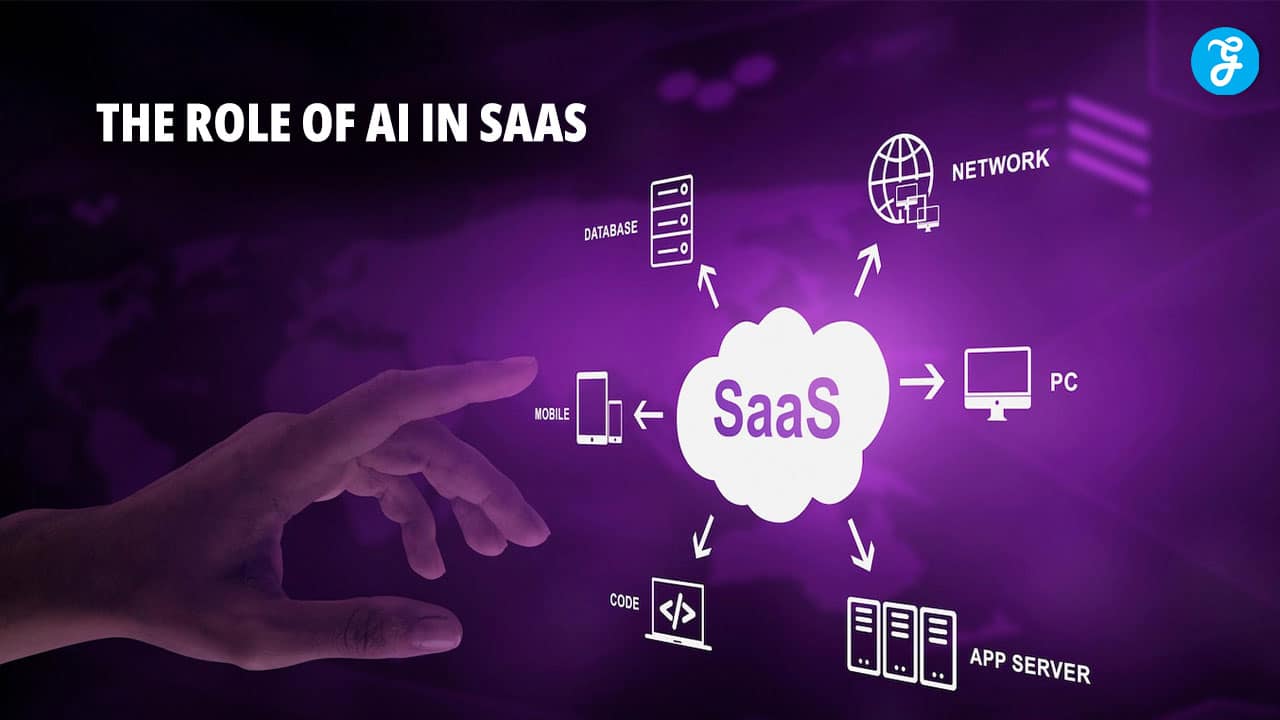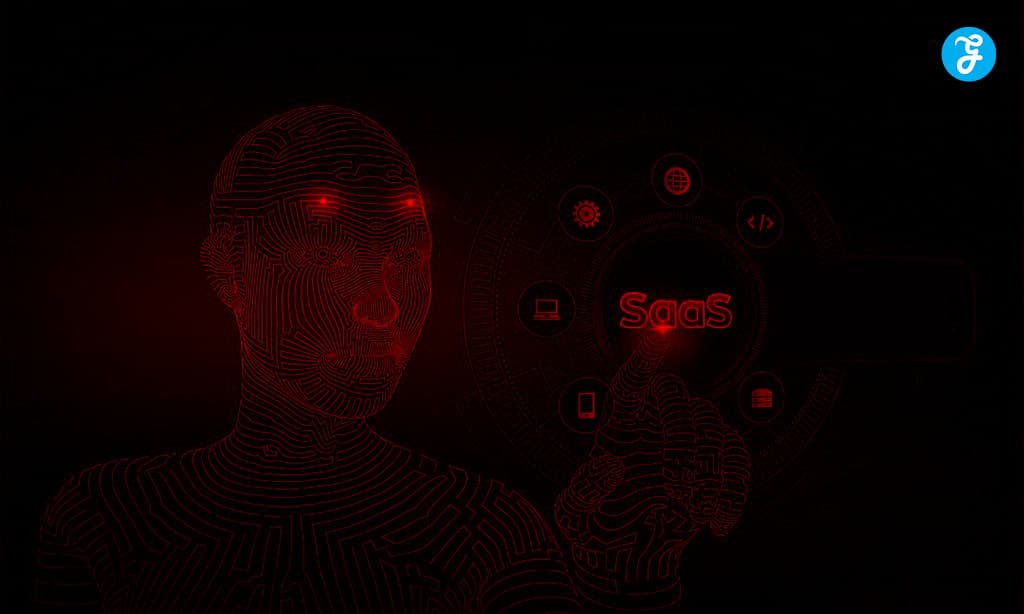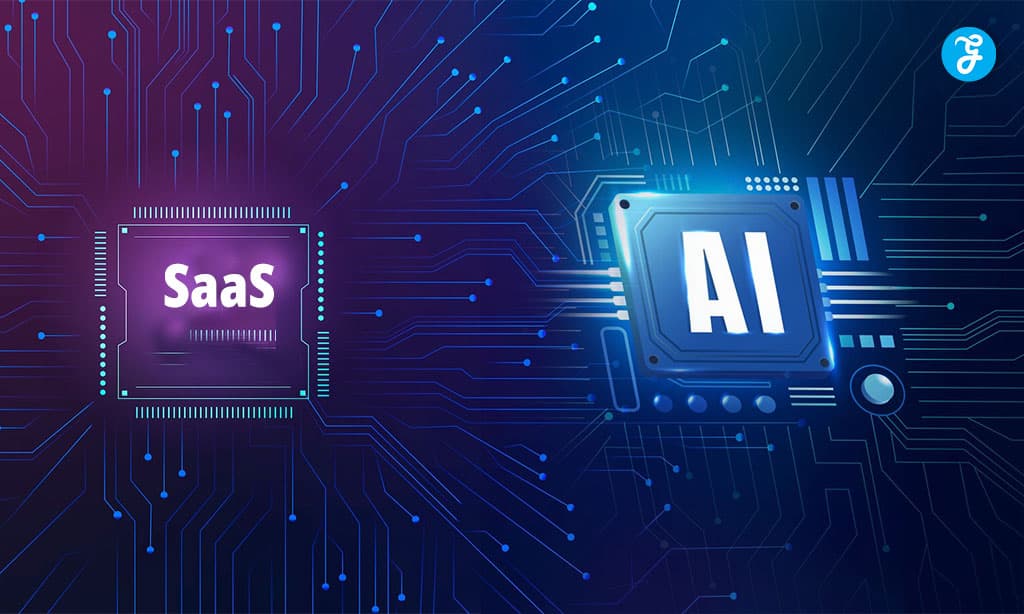AI is changing how SaaS companies work. It’s making software more intelligent and more helpful for businesses. How does this affect you and your company?
AI-powered SaaS tools can save time and money by automating tasks and giving better insights. These tools can learn from data to make intelligent choices.
They can help with customer service, sales, and product recommendations. As AI improves, SaaS products will keep improving to meet your needs.
Automation in SaaS Platforms
AI is driving significant changes in how SaaS platforms handle routine tasks and customer interactions. These advances are making software more efficient and user-friendly.
Streamlined Workflows
AI helps SaaS platforms automate many time-consuming tasks. This frees up your team to focus on more important work. For example, AI can:
- Schedule meetings by checking everyone’s calendars
- Fill out forms using data from other systems
- Generate reports with up-to-date info
- Organize and tag files automatically
These tools learn from how you work. They get better at predicting what you need over time. This means less manual data entry and fewer errors in your daily tasks.
Automated Customer Support
AI chatbots and virtual assistants are changing how SaaS platforms handle customer questions. These tools can:
- Answer common questions instantly
- Guide users through basic troubleshooting
- Collect info before handing it off to human agents
- Offer 24/7 support without added staff costs
AI support systems use natural language processing to understand user queries. They pull answers from knowledge bases and past interactions. This gives users quick, accurate help any time of day.
1. Automated Customer Support
AI is changing how SaaS companies handle customer support. Many are now using AI-powered chatbots and virtual assistants. These tools can answer common questions quickly, any time of day or night.
AI systems learn from past interactions. This helps them get better at solving problems over time. They can often handle simple issues without human help. This frees up support staff to focus on more complex customer needs.
Have you ever wondered how AI improves response times? It can instantly search through vast amounts of data to find answers. This means you get help faster than waiting for a human agent.
AI also helps personalize support. It can look at your account history and tailor responses to your situation. This makes the support experience feel more relevant and helpful to you.
Some AI tools can even predict when you might need help. They can send proactive tips or alerts before problems occur. This can prevent issues and improve your experience with the software.
While AI is powerful, it’s not perfect. Complex issues still often need a human touch. However, AI support is becoming faster and more accurate for many routine tasks.
2. Predictive Analytics for Sales
AI is changing how SaaS companies sell their products. Predictive analytics uses AI to look at past data and guess what might happen next.
This technology helps sales teams find the best leads. It can tell which customers are most likely to buy. This saves time and helps focus on the right prospects.
AI can also predict when a customer might stop using a product. This lets sales teams reach out at the right time to keep customers happy.
Predictive analytics can spot patterns in customer behavior. It shows what actions lead to sales. This helps create better sales strategies.
You can use AI to set the correct prices, too. It looks at market trends and competitor prices. This helps you offer competitive deals that still make money.
AI-powered tools can even suggest the best times to contact leads. They analyze when customers are most likely to respond. This improves the chances of making a sale.
These tools also help personalize sales pitches. They look at customer data to find what each person cares about most. This makes your outreach more effective.
With predictive analytics, you can forecast sales more accurately. This helps with planning and setting realistic goals. It takes the guesswork out of sales projections.
3. AI-Driven Content Creation
AI is changing how SaaS companies make content. It helps create blogs, social media posts, and product descriptions faster and better.
You can use AI tools to write first drafts quickly. These tools learn from lots of online content to generate new text. This saves you time and gives you ideas to work with.
AI can also help make your content more engaging. It can suggest headlines that grab attention. It can recommend ways to improve your writing style and clarity.
Some AI tools can create images and videos, too. This is great for making eye-catching visuals for your SaaS marketing.
AI can personalize content for different users. It looks at data about what people like and tailors messages just for them. This helps your SaaS product connect better with customers.
Using AI for content doesn’t mean replacing humans. You still need people to check the AI’s work and add insights. The best results come from AI and humans working together.
As AI keeps improving, new ways to create and share content in the SaaS world will open up. This will help you reach more customers and explain your products better.
4. Fraud Detection Systems
AI is changing how SaaS companies spot and stop fraud. These intelligent systems look at lots of data to find odd patterns that might be a fraud.
You can use AI to check transactions in real time. It flags anything strange, like a big purchase from a new place. This helps catch fraud fast before it causes problems.
AI learns from past fraud cases, too. It gets better at spotting new tricks fraudsters try. This means your SaaS platform stays one step ahead of the bad guys.
These systems can also check user behavior. AI notices if someone logs in from a new device or changes their habits. It can then ask for extra proof it’s them.
AI fraud detection works 24/7 without getting tired. It can handle way more data than humans, making it super efficient. This saves time and money for your SaaS business.
Using AI for fraud detection keeps your customers’ data safer. It builds trust in your platform, critical to maintaining and gaining users.
Remember, AI isn’t perfect. It works best when paired with human oversight. Together, they make a solid team to protect your SaaS from fraud.
5. Personalized Marketing Campaigns
AI is changing how SaaS companies do marketing. It helps create campaigns that speak directly to you. How? By looking at your data and behavior.
With AI, SaaS firms can send you messages that match your interests. They can show you offers you’re likely to want. The content you see becomes more relevant to you.
AI can predict what you might need next. It uses this info to suggest products or features you’ll find helpful. This makes your experience with the SaaS product feel more tailored to you.
These personalized campaigns lead to better results. You’re more likely to engage with marketing made just for you. This means more clicks, sign-ups, and sales for SaaS companies.
AI also helps SaaS firms save time. It can automate parts of the marketing process. This lets teams focus on creating even better campaigns for you.
As AI gets smarter, expect to see even more personalized SaaS marketing. You’ll get offers that fit your needs at just the right time. This makes for a better experience for you and more success for SaaS businesses.
6. Intelligent Chatbots
AI-powered chatbots are changing how SaaS companies interact with customers. These intelligent assistants can handle many tasks without human help.
Chatbots answer questions, solve problems, and guide users through software. They work 24/7, giving customers quick support whenever they need it.
These bots learn from every conversation. This means they get better at helping users over time. They can even predict what a customer might ask next.
Chatbots save companies money by reducing the need for human support staff. They also make customers happier by giving fast, accurate answers.
Some chatbots can even understand emotions. This lets them adjust their tone to match the customer’s mood. It makes the conversation feel more natural and personal.
For SaaS companies, chatbots are great for onboarding new users. They can walk people through features step-by-step. This helps users get the most out of the software.
Chatbots also collect valuable data. They show companies what problems users face most often. This info helps improve the software and customer service.
As AI gets more intelligent, so do chatbots. Soon, they might handle even more complex tasks. This could change how we think about customer support in SaaS.
7. AI-Powered CRM Tools
AI is changing how businesses manage customer relationships. CRM tools now use AI to make tasks easier and improve customer service.
Smart CRMs can predict what customers might want to buy next. They look at past purchases and behavior to make good guesses. This helps sales teams focus on suitable leads.
AI also helps with customer support. Chatbots can answer simple questions quickly. This frees up human agents for more complex issues.
Voice recognition is another cool AI feature in CRMs. It can turn phone calls into text, keeping records and spot trends accessible.
Some CRMs use AI to score leads. They figure out which potential customers are most likely to buy. This saves time for sales teams.
AI-powered CRMs can also personalize messages to customers. They pick the right time and content for each person. This makes marketing more effective.
Data analysis is much faster with AI. CRMs can crunch vast amounts of data and show valuable insights quickly. This helps businesses make more intelligent choices.
As AI keeps improving, CRM tools will improve at helping businesses connect with customers. They’ll become more accurate and helpful over time.
8. Natural Language Processing for Data Extraction
Natural language processing (NLP) is changing how SaaS companies handle data extraction. This AI technology helps computers understand and work with human language.
NLP tools can pull important information from emails, documents, and other text sources. They do this automatically, saving time and reducing errors.
You can use NLP to extract customer details from invoices or support tickets. The software finds names, addresses, and other critical data without human help.
NLP also improves how SaaS products understand user requests. It can figure out what customers want, even if they use different words or phrases.
For data scientists, NLP makes analyzing large amounts of text data easier. It can spot trends and patterns that humans might miss.
Many SaaS companies now use NLP to clean and organize their data. This makes the information more useful for other AI tasks and business decisions.
As NLP gets better, it will allow SaaS products to offer more personalized experiences. They’ll be able to understand and respond to users more naturally.
9. Machine Learning for Forecasting
Machine learning is changing how SaaS companies predict the future. This technology helps businesses make more intelligent choices by looking at lots of data.
You can use machine learning to guess what might happen next in your business. It can spot patterns in your sales, customer behavior, and market trends.
These forecasts are more accurate than traditional methods. They update automatically as new information comes in. This means you always have the latest predictions at your fingertips.
Machine learning can help you plan inventory, set prices, and manage staff. It can even predict when a customer might leave your service. This lets you take action to keep them happy.
Some SaaS tools now offer built-in forecasting features. These use machine learning to give you insights without needing a data scientist on staff.
As this technology improves, it will become a must-have for SaaS companies. It can give you an edge over competitors who rely on old-fashioned guesswork.
Remember, good forecasts need good data. Ensure you’re collecting the correct information to feed your machine-learning models.
10. Intelligent Document Processing
Intelligent Document Processing (IDP) is changing how SaaS companies handle paperwork. This AI-powered tech can read and understand documents like a human.
IDP systems can scan, classify, and extract data from various documents. This includes invoices, contracts, and forms. You no longer need to input data from these papers manually.
These systems use machine learning to improve over time. They get better at recognizing different document types and finding important information. This means less work for you and fewer mistakes.
IDP saves time and money for businesses. It can process thousands of documents quickly and accurately. This frees up your staff to focus on more critical tasks.
Many SaaS platforms now offer IDP as a feature. You can easily add this capability to your existing workflows. This helps streamline your operations and boost productivity.
With IDP, you can turn unstructured data into valuable insights. This helps you make better decisions and serve your customers more effectively. It’s a powerful tool for any SaaS business looking to stay competitive.
AI-Driven Analytics
AI is changing how SaaS companies handle data and gain insights. It helps process massive amounts of information quickly and predict future trends accurately.
Enhanced Data Processing
AI tools can sift through considerable datasets in seconds. This lets SaaS companies spot patterns and trends they might miss otherwise. You can use AI to clean up messy data and fill in gaps. This saves time and improves data quality.
AI also helps combine data from different sources. It can match up customer info, sales data, and website traffic. This gives you a complete picture of your business in one place.
Some AI systems can even process text, images, and video. This opens up new ways to analyze customer feedback and social media mentions.
Predictive Insights
AI doesn’t just look at past data; it can also predict the future. You can use AI models to forecast sales, customer churn, and market trends.
These predictions help you make smarter choices. You might spot a customer likely to leave and reach out before they do. Or you could see which products will be popular next season and stock up early.
AI can also personalize predictions for each customer. It might suggest products they will buy or the best time to email them.
As AI gets more intelligent, these predictions become more accurate. This helps you stay ahead of the curve and make data-driven decisions.
AI-Powered Personalization
AI is changing how SaaS products interact with users. It creates custom experiences and delivers content based on individual needs and behaviors.
Tailored User Experiences
AI helps SaaS platforms adapt to each user. It looks at how you use the software and adjusts the interface to fit your needs. You might see different features or layouts based on your job role or past actions.
This personalization makes the software more straightforward to use. You find what you need faster and get more value from the product. Some examples include:
- Custom dashboards that show your most important data
- Suggested tools based on your frequent tasks
- Simplified menus that hide rarely used options
AI learns from your choices over time. The more you use the software, the better it understands your preferences.
Dynamic Content Delivery
AI also changes the content you see in SaaS products. It picks information that’s most relevant to you at any given time. This applies to things like:
- Help articles and tutorials
- Product recommendations
- Email notifications
The system uses data about your past behavior, current context, and similar users to guess your needs. You get more helpful info and less clutter.
For example, the AI might show related resources if you’re working on a specific project. Or, if you often use certain features, it could highlight tips for those tools.
This innovative content delivery saves you time. You spend less effort searching and more time getting work done.
Takeaways
AI is revolutionizing SaaS, bringing numerous benefits that enhance efficiency, user experience, and business intelligence. By automating routine tasks and providing advanced analytics, AI-powered SaaS tools streamline workflows, improve customer support, and enable predictive sales strategies.
Personalized marketing campaigns and intelligent chatbots offer tailored user experiences, while fraud detection systems and intelligent document processing enhance security and operational efficiency. AI-driven content creation and predictive analytics provide valuable insights, making decision-making more data-driven and accurate.
As AI technology advances, its integration into SaaS platforms will become even more essential, driving innovation and ensuring businesses stay competitive in an ever-evolving digital landscape.




































